INNOVATE MALAYSIA DESIGN COMPETITION (IMDC) 2016
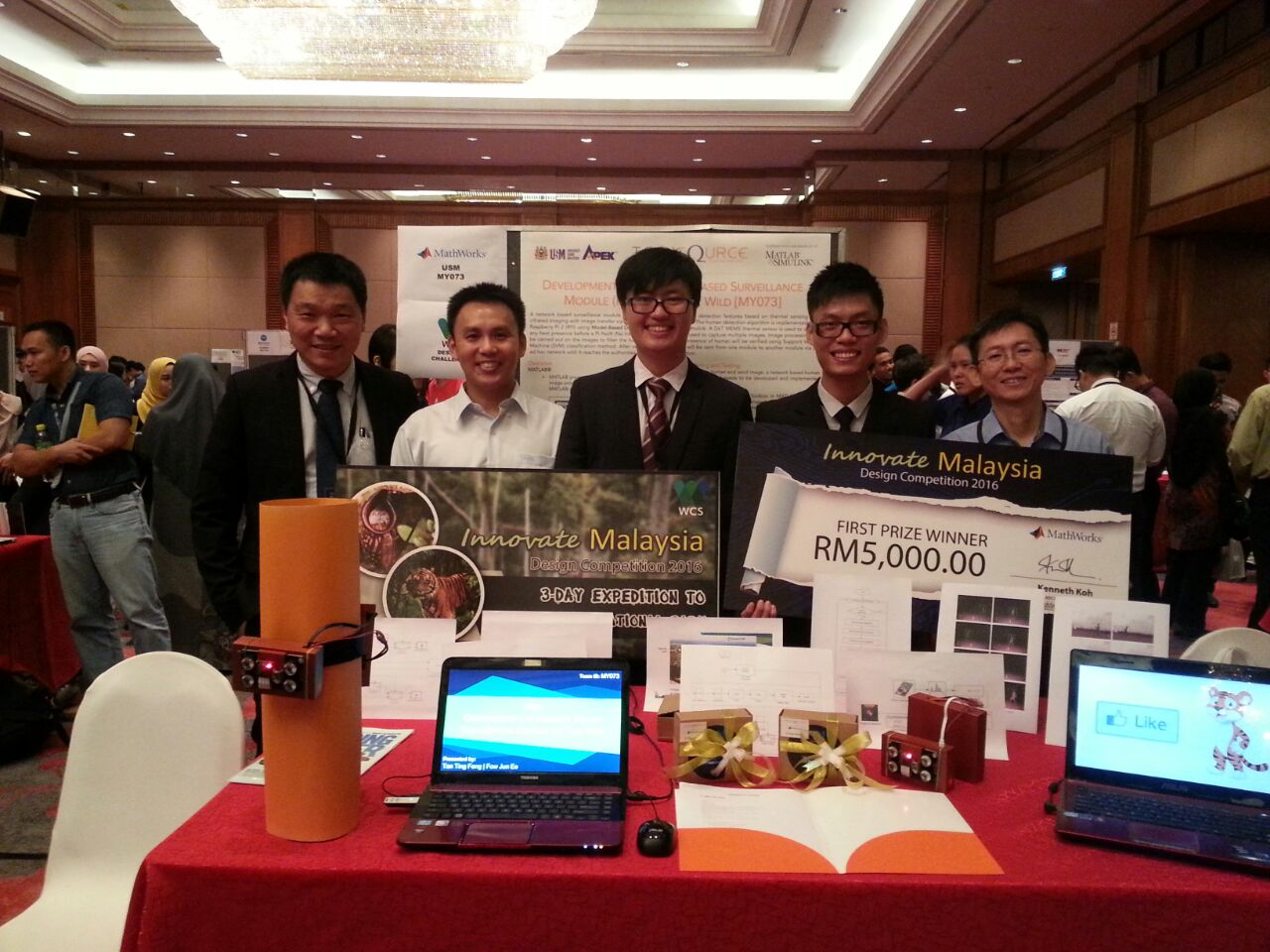
IMDC is a multi-discipline engineering design competition open to all final year undergraduate engineering or computer science students in Malaysia with the goal to promote innovative culture in engineering design work, tackle real-world problems with practical engineering solutions, and churn out brightest talents for product development, further research, and commercialization. The competition is supported by industry sectors where they work with universities to develop projects. The industries consist of Altera, Intel, Keysight, MathWorks, Microsoft, Motorola Solutions, National Instruments, SilTerra and ViTrox where the students have to choose one of the “Track” or industry listed to carry out their projects.
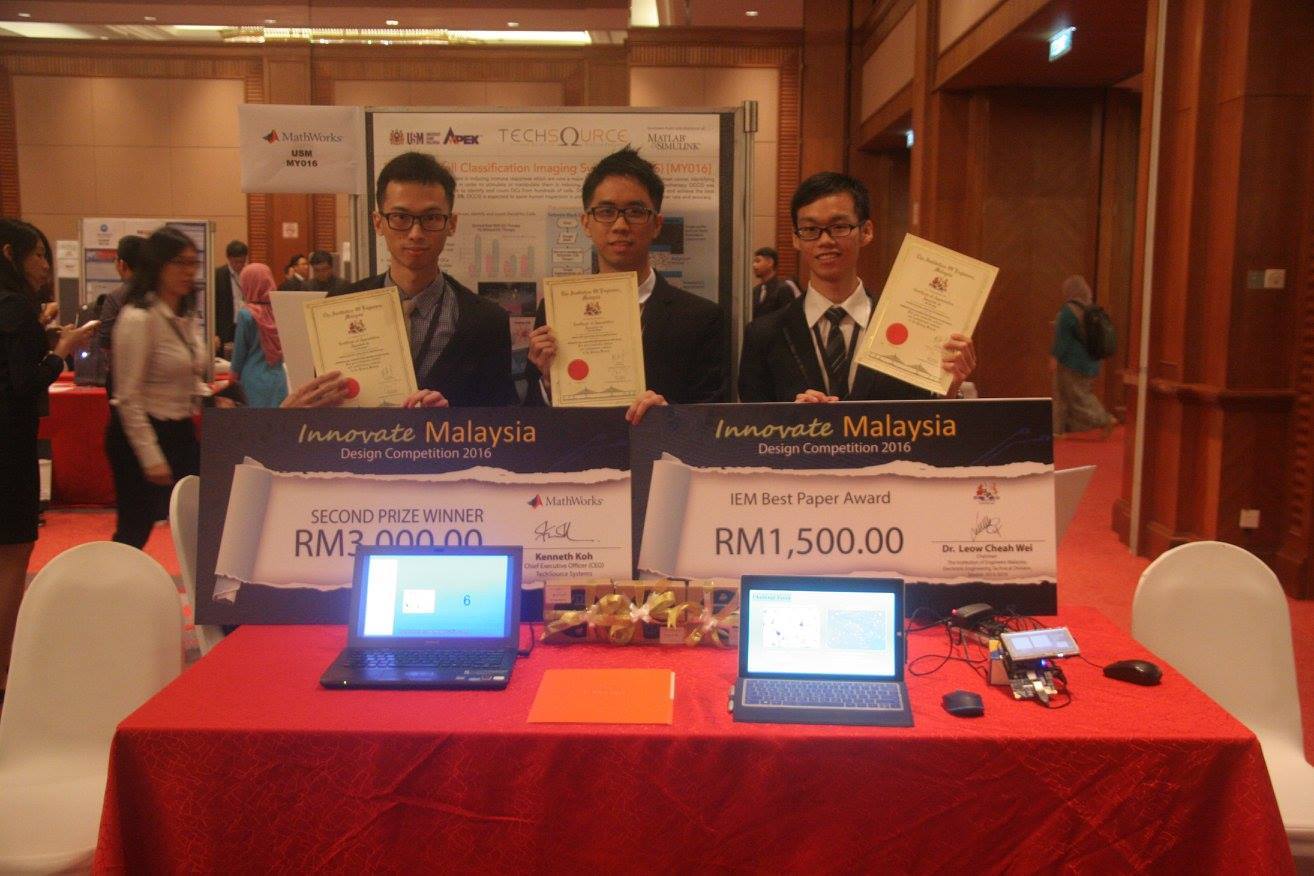
More than 400 teams participation from 29 public and private institutions of higher education in Malaysia, and only the top 5 of each track enters the Grand Finale in Equatorial Hotel for conference and industry showcase.
USM engineering campus is represented by 8 teams where 6 teams are from School of Electrical & Electronic Engineering, 1 team from School of Aerospace Engineering and 1 team from School of Mechanical Engineering. Teams from School of Electrical & Electronic Engineering secured a total of 10 prizes in IMDC 2016.
A project title of “Development of Network Based Surveillance Module (NBSM) for the Wild” is the Champion of MathWorks track in IMDC 2016.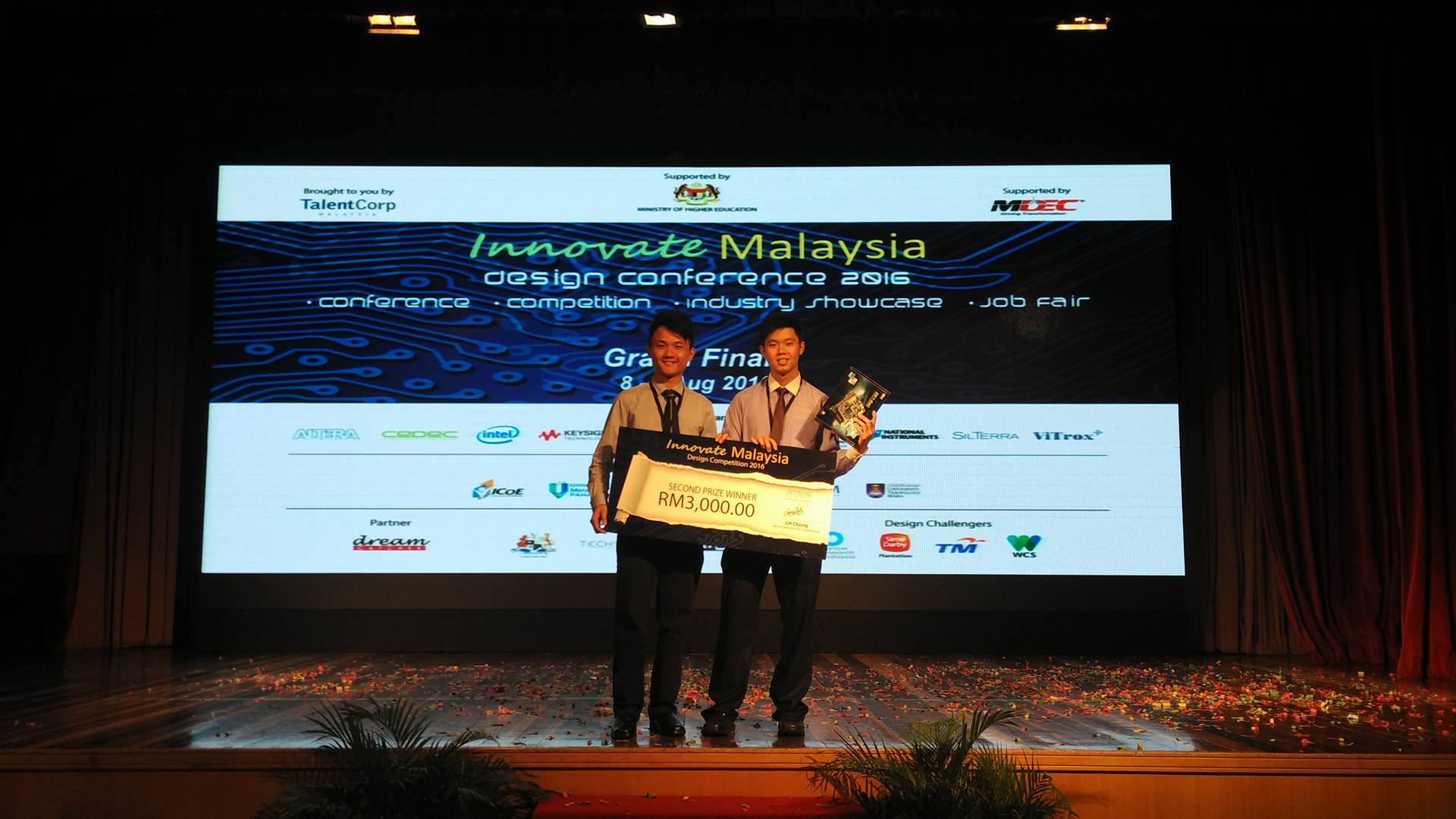
This project is a combine effort of both School of Electrical & Electronic Engineering (PPKEE) and School of Mechanical Engineering (PPKM). The team consists of Tan Ting Feng from PPKEE and Fow Jun Ee from PPKM, under the supervision of Dr. Teoh Soo Siang from PPKEE and Ir. Dr. Yen Kin Sam from PPKM. The network based surveillance module developed is able to detect human in the morning and at night with 100% positive detection and able to transmit near instantaneous alerts to the authorities. This project also was awarded the winner of the Wildlife Conservation Society (WCS) Malaysia Design Challenge.
Another project with the title of “Dendritic Cell Classification Imaging System (DCCIS)” has secured the 1st Runner up of MathWorks track.
The team is supervised by Prof Dr Nor Ashidi Mat-Isa, with the team members Lim Yen Ruen, Lee En Sheng and Oh Hai Seng. Dendritic Cell Classification Imaging System (DCCIS) is able to assist human eye in cancer immunotherapy research by identifying and counting Dendritic Cells from hundreds of blood cells in medical image and achieve overall classification accuracy of 91.5%. This project also won the category “IEM Best Paper Award”.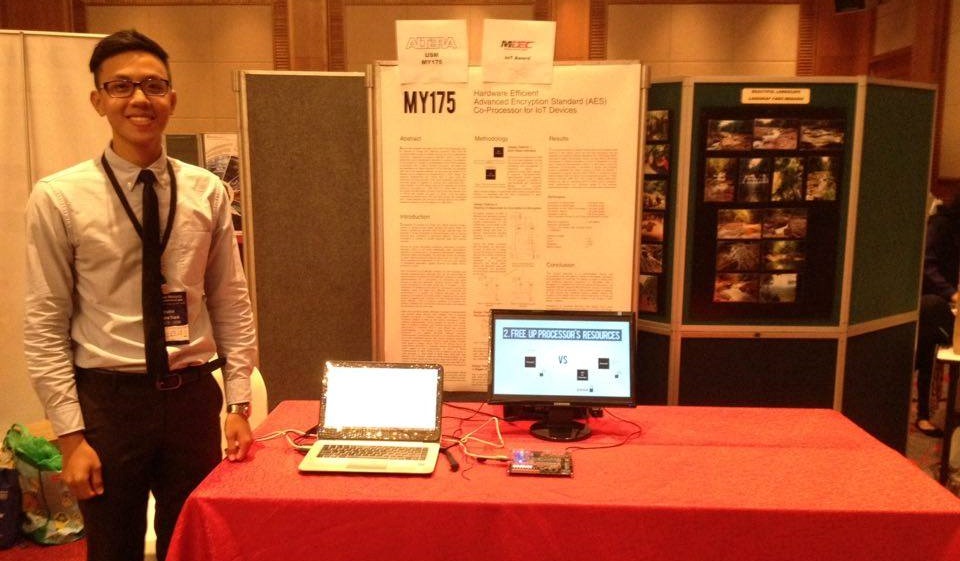
Furthermore, project with the title of “IoT-based Healthcare Monitoring System” has secured the 2nd Runner up of Intel track. The team is supervised by Dr. Zaini Abdul Halim, with the team members Tiong Reng Xian, Kong Xin Ping and Koh Suet Min. IoT-based healthcare monitoring system tackles the social problems faced in medical field such as shortage of doctor and distance barrier by transforming the conventional medical healthcare service into innovative medical system through the application of IoT with high realiability in terms of accuracy and low speed transmission. This project also was awarded the winner of the Telekom Malaysia (TM) Design Challenge.
The team supervised by Dr. Mohamad Khairi Ishak, with the team members, Ho Kar Hwai and Lee Kong Lam with the project “Low Cost Solution of Embedded Real-Time Control Communication System for Robotics” secured the 1st Runner up of Altera track This project is to develop an approach for low cost solution of embedded real time control communication system by interfacing Altera DE 2 FPGA board and Arduino board to control robotic arm via Ethernet. Transmission delay between FPGA-FPGA and FPGA-Arduino communication systems are compared to achieve lowest latency. Besides that, the team supervised by En. Zulfiqar Ali Abd. Aziz with team member, Ung Shen Jie secured the consolation prize of Altera track with the project “Hardware Efficient Advanced Encryption Standard (AES) Co-Processor for IoT Devices”. The Advanced Encryption Standard (AES) hardware accelerator module is used to speed up the encryption and decryption process and able to achieve maximum speed of 1.6Gbit per second.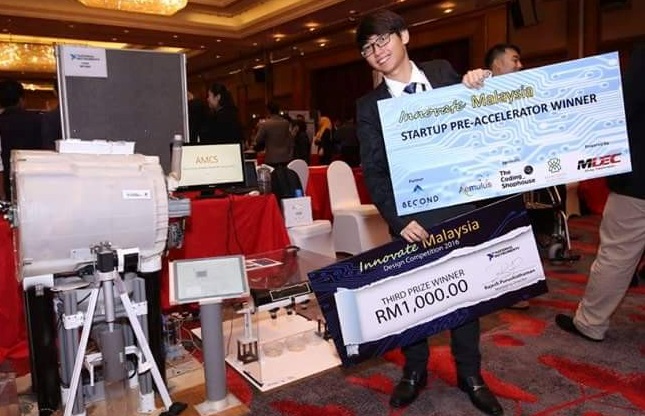
Last but not least, project with the title of “Upcycling Coffee Grounds & Tea Leaves with Automated Mushroom Cultivation System, AMCS” has secured 2nd Runner up of National Instrument (NI) track. The team is supervised by Dr. Khoo Bee Ee with team member, Vincent Ong Boon Keong. The automated mushroom cultivation system is able to produce an average of 76 mushroom producing logs and maintain proper growing chamber's temperature and humidity. This project also won the category “Innovate Malaysia Startup Pre-Accelerator”.
The participants of IMDC would like to thank the School of Electrical & Electronic Engineering for all that has been given to them, from the resources provided to develop their projects to the guidance and support of their mentors and supervisors.
